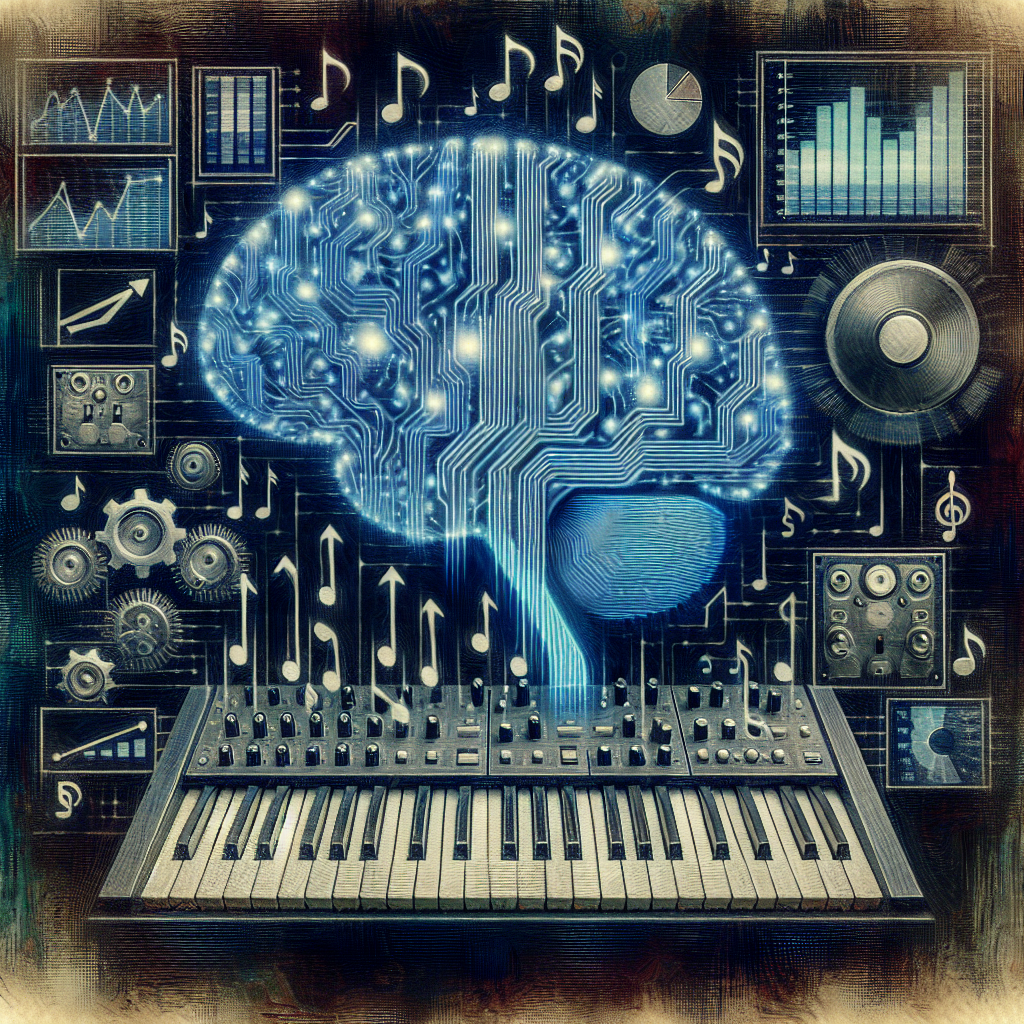Artificial Intelligence (AI) has revolutionized almost every industry, and the music industry is no exception. From creating music to distributing it, AI has transformed the way artists and marketers operate. In particular, AI has played a crucial role in music marketing by leveraging data for success. In this article, we will explore how AI is changing the landscape of music marketing and how businesses can use it to their advantage.
AI in music marketing: The basics
AI refers to the simulation of human intelligence processes by machines, especially computer systems. In the context of music marketing, AI can analyze vast amounts of data to identify trends, target audiences, and personalize marketing strategies. By leveraging AI, businesses can make data-driven decisions that lead to more effective marketing campaigns and ultimately, increased sales.
One of the key ways AI is transforming music marketing is through data analysis. AI algorithms can sift through large datasets to identify patterns and insights that humans may not be able to detect. This allows marketers to better understand their target audience, predict consumer behavior, and tailor their marketing strategies accordingly.
AI can also be used to personalize marketing campaigns. By analyzing user data, AI can create personalized recommendations for music fans based on their listening habits, preferences, and behaviors. This level of personalization can lead to higher engagement and conversion rates, as consumers are more likely to respond to messaging that resonates with them on a personal level.
In addition, AI can automate certain marketing tasks, freeing up marketers to focus on more strategic initiatives. For example, AI can be used to create and schedule social media posts, analyze campaign performance, and optimize ad targeting. This automation can save time and resources, while also improving the efficiency and effectiveness of marketing efforts.
AI in music creation
AI is not only transforming music marketing, but also the creation of music itself. AI-powered tools can generate music compositions, analyze lyrics, and even produce music videos. This technology can be used by artists to enhance their creative process, experiment with new sounds, and reach a wider audience.
For example, AI can analyze music streaming data to identify trends and preferences among listeners. This information can help artists create music that resonates with their target audience and increase their chances of success. AI can also be used to generate music recommendations, helping music fans discover new artists and genres that they may enjoy.
AI in music distribution
AI is also changing the way music is distributed and promoted. AI-powered platforms can analyze streaming data to identify emerging artists, predict music trends, and recommend songs to listeners. This technology can help artists gain visibility, attract new fans, and ultimately, grow their careers.
In addition, AI can be used to optimize music distribution channels. By analyzing data on listener demographics, preferences, and behaviors, AI can help artists and marketers identify the most effective channels for reaching their target audience. This can lead to increased exposure, higher engagement, and ultimately, more sales.
FAQs
Q: How can businesses use AI in music marketing?
A: Businesses can use AI in music marketing in a variety of ways, such as analyzing data to identify trends, personalizing marketing campaigns, and automating tasks. By leveraging AI, businesses can make data-driven decisions that lead to more effective marketing strategies and ultimately, increased sales.
Q: How does AI impact music creation?
A: AI is transforming the music creation process by helping artists generate music compositions, analyze lyrics, and produce music videos. This technology can enhance the creative process, experiment with new sounds, and reach a wider audience. AI can also analyze streaming data to identify trends and preferences among listeners, helping artists create music that resonates with their target audience.
Q: How can AI help with music distribution?
A: AI can help with music distribution by analyzing streaming data to identify emerging artists, predict music trends, and recommend songs to listeners. This technology can help artists gain visibility, attract new fans, and grow their careers. AI can also optimize music distribution channels by analyzing data on listener demographics, preferences, and behaviors to identify the most effective channels for reaching their target audience.
In conclusion, AI is changing the landscape of music marketing by leveraging data for success. By analyzing data, personalizing marketing campaigns, and automating tasks, businesses can make data-driven decisions that lead to more effective marketing strategies and ultimately, increased sales. AI is also transforming the music creation process and the way music is distributed, helping artists reach a wider audience and grow their careers. As AI continues to evolve, businesses in the music industry will need to adapt and embrace this technology to stay ahead of the competition.

